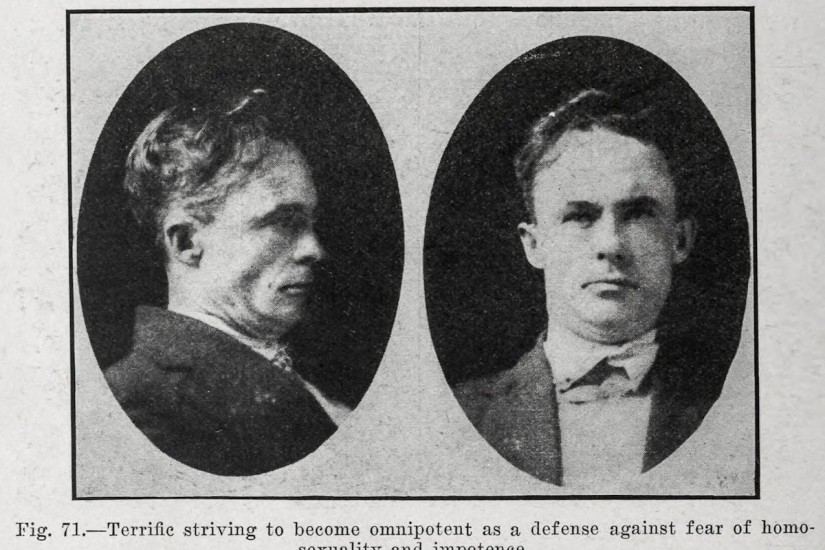Indecent advances” is not only Polchin’s title; it’s a refrain, proffered by defendant after defendant. The legal strategy of claiming to have been enraged by a victim’s sexual overture was known as the homosexual-panic defense. One of the questions at the heart of Polchin’s book is whether the term “homosexual panic” described a real psychological response or was merely an ideological pretext. It’s easy to see how convenient the notion must have been to defendants, but it also would have been convenient to conservative elements in society who wanted to keep gay men in a state of fear, analogous to false claims of black-on-white rape that long contributed to threats of lynching and to the suppression of civil rights.
The oldest plea of homosexual panic in America seems to have been made in Massachusetts in 1868. Accused of killing a longtime friend, a young man named Samuel M. Andrews claimed that he had been driven into “transitory insanity” when the friend pushed him down, tore open his pantaloons, and said, “Now I’m going to have some, this time.” The word homosexual wouldn’t début in English for almost another two decades, but a fear of homosexuality was already being presented as a justification for killing a gay man. In the end, a jury did convict Andrews of manslaughter, perhaps because jurors were unable to square his claim that the overture had terrified and enraged him with his admission that his late friend had been making passes at him for the previous nine years, ever since an attempt on a memorable stormy evening that they had spent in bed together.
Andrews knew the man he killed quite well (there were hints that the victim had planned to make Andrews his heir) but, in many of the cases described in Polchin’s book, which span the years between the First World War and Stonewall, the likely inside story was more transactional: an older man had intended to hire a piece of “rough trade,” as young working-class men were then called when they identified as straight but were willing to have sex with other men for money.
